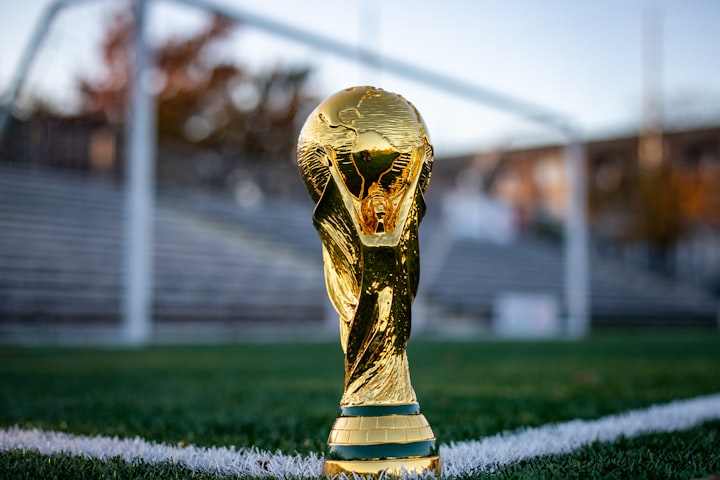To Bid, or Not To Bid
High-profile controversies miring a sports mega-event are no news. Sochi, Rio, Beijing, and now Doha have all come under immense heat from the international community in their seemingly innocuous attempts at hosting events such as the Olympics and the FIFA World Cups. These events aren’t so much about promoting sports or building the economy but carry a deeper symbolism aimed at both, external and internal spectators. In an increasingly polarized world, however, this muscle flexing seems to have done more harm than good. To bid, or not to bid? - that is the question.

The FIFA World Cup Qatar 2022 kicked off last week but the mega sporting event has been tainted with controversies right from 2010 when Qatar won the bid to host the 2022 edition of the football tournament. So far, 17 of the 22 FIFA ExCo members who handed the 2022 World Cup to Qatar have been banned or indicted over allegations of corruption and wrongdoing. Apart from being organized at one of the most politically charged times in modern history, the event is also the first sports mega-event to be held in the Arab world. The hot and dry weather in the country forced the organizers to shift the tournament from the usual summer time to winter, disrupting other tournament cycles elsewhere. What forms the bulk of controversies against Qatar, however, is the kingdom’s record on human rights abuse.
Qatar, despite being one of the richest countries due to its massive natural gas reserves, was certainly not ready from an infrastructure point of view, to host a tournament as large as the FIFA World Cup. Between 2010 to 2022, the country invested heavily in projects such as large stadiums to house the viewers, luxury hotels to host around a million international fans, and transport infrastructure to connect the host stadiums across the small country. Aljazeera reports that the country constructed a total of 7 new stadiums and conducted repairs and upgrades for an eighth. Over the past 12 years, the organizers have built hotels, apartments, villas, and infrastructure to prepare for the mega event. The organizers have also allowed residents to put their houses and rooms up for rent in an attempt to ease accommodation concerns. Transport infrastructure projects involved building a metro rail system, a tram system, and the construction of highway projects. The country has also upgraded its domestic security with recruitments from Turkey as well as Pakistan, to avoid any untoward incidents.
While it is commendable how the country has managed to build a massive sports infrastructure within a span of 12 years, scratching beneath the surface reveals a darker truth. The infrastructure was largely built by migrant workers from South Asian countries such as India, Pakistan, Sri Lanka, Nepal, and Bangladesh, who were treated with the least regard for human and labor rights, leading to the death of as many as 6500 migrant workers and injuring many more. Reports point to discriminatory pay for migrants, violation of employee contracts, and extremely harsh working and living conditions for the workers. This report by the Guardian summarizes the ill-treatment of laborers in the gulf country and the effects it has had on the families of those migrant workers back home. Qatari authorities have refuted the claims but similar investigations by human rights groups such as Amnesty International have provided enough evidence to suggest that labor rights have been grossly violated.
These reports attracted global criticism in the run up to the 2022 World Cup, which also led to reforms in Qatar’s labor policies. For instance, Kafala, a system under which workers cannot freely change jobs, was abolished, minimum wages were established, and working hours, particularly during the harsh summers, were reduced. While it is true that there has been significant improvement in Qatar’s record on labor rights in the past few years, majorly because of the World Cup, whether or not these reforms continue to remain in place, even after the event, still remains doubtful. For a monarchy, where the Qatari population makes less than 15% of the total, with the rest being composed majorly of migrant workers, there is little incentive for the state to uphold these rights. Apart from the widespread abuse of labor rights, the country has also been scrutinized for its stance on the rights of LGBTQ+ community members and its restrictions on freedom of speech. Homosexuality in Qatar is still illegal and punishable by up to three years in prison.
What was set to be an event for Qatar to shine and showcase its modernity and dexterity to the world has put it right at the center of criticism and disenchantment. Political leaders across the USA and Europe have publicly called out Qatar for its inaction against labor rights violations. Even celebrities such as Robbie Williams and David Beckham, who are endorsing the World Cup have come under fire for accepting huge sums of money for endorsing Qatar. Moreover, these incidents have also sparked animosity between the west and the gulf states where the latter have also been accusing the former of mistreatment of migrants in their own countries. This is evident from the final statement of the Arab summit, held early this year in Algeria, where the Arab leaders announced their support for the State of Qatar in hosting the 2022 World Cup, rejecting the “suspicious campaigns of distortion and skepticism” that Qatar had been exposed to, weeks before the start of the World Cup.
The other recent sports mega-events such as the Beijing 2022 Winter Olympics, FIFA World Cup Russia 2018, the Rio 2016 Summer Olympics, and the Sochi 2014 Winter Olympics were also mired with similar controversies where host countries were accused of labor rights violations, geopolitical destabilization, and environmental concerns. Events in developed countries such as the Athens 2004 Olympics, London 2012 Olympics, and Tokyo 2020 Olympics also met resistance from domestic stakeholders - taxpayers, who footed a major portion of the bill. With the events getting more and more expensive and hosts seeing lesser returns (tangible and intangible), the Olympic Games and the FIFA World Cup are attracting fewer bids year after year. For instance, with regards to bids for hosting the Summer Olympics Games, in 2004, there were 11 bids, which reduced to 10 in 2008, 9 in 2012, 7 in 2016, 5 in 2020, and 2 for 2024.
In an increasingly globalizing, yet polarized world, sports events have turned into a proxy for diplomacy, muscle-flexing, and expression of geopolitical statements. These events hold an opportunity but that certainly doesn't come risk-free. And therefore, to bid, or not to bid? - that is the question.
About the Creator
Rishi Rathi
Musing over sustainability and impact and ways to make the world better than we inherited. I'm learning while I write and I want your opinions on my stories.
Instagram - rishirathi_






Comments
There are no comments for this story
Be the first to respond and start the conversation.